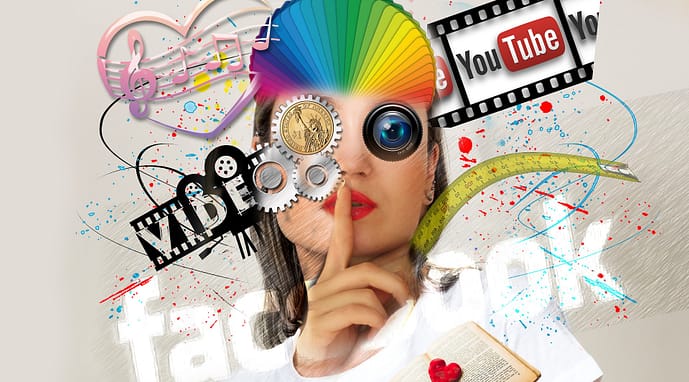
When it comes to grief and social media…I’m afraid my viewpoint is a bit tainted. Actually, it’s pretty bad. This is because social media has not been comforting for me where grief is concerned and my experiences with it have mainly been negative. But because everyone has a different grief journey, you may be someone who finds a lot of connection and support through social media when it comes to expressing your feelings over your loss.
I feel like I have noticed that there are mainly three types of grievers active on social media. This is just a personal observation. You may feel differently.
- Plasters constant reminders and memorials and tributes pertaining to their loss only.
- Plasters nothing having to do with grief or their loss at all – only their current day to day life.
- Plasters a mix of both.
There is probably a fourth type of griever on social media that I would think of. That’s the one that’s not on social media at all and actively avoids due to grief related reasons. If you want to count this fourth one, then I would probably fall between the third type and this fourth type. And people change as they navigate loss. Someone may be the first type of social griever early on, but then as time passes, they may start becoming one of the others. I was the first type for a very brief amount of time in the beginning. Then, I moved into the second type because I no longer wanted to talk about it. Now, as I mentioned before, I am at the third type mixed with the one who just flat out avoids most social media altogether.
With grief and social media, I have some trouble writing about this subject because it’s extremely delicate to me due to my own person experiences. And I will explain further below. I feel like I say that in many of my posts, but grief, in general, is a delicate subject, so I’m not sure it can really be helped. However, because this post is supposed to be about both positives and negatives of dealing with grief through social media, I will try to have enough of the good things to share with you, too.
An Outlet for Support
So, one of the good things about sharing grief and loss on social media is that it allows you to connect with others, such as family and friends and colleagues, and invite the possibility of emotional support. If you have family and friends that are living far away from you and you can’t connect in person very often, then the benefit of social media is the opportunity to do this. You can post tributes and memorials for the person that you are grieving for and others can offer comments for support. Sometimes, they will share their own memories and stories, which can allow all of you to remember your loved one together.
A lot of people need to feel this kind of support anyway after a loss. But if you are located far away and/or everyone has extremely busy lives, including you, it can be hard to connect in any manner. So, the benefits of social media are obvious in this case. It allows you some level of support so you’re not feeling a sense of isolation or total alienation from everyone else while you navigate grief. Before social media was around, people had to rely on things like cards and gifts through the mail. Or phone calls and memorial services where you could talk or visit. You and others had to make time to get together face to face if you were going to see each other. But then, once the initial early grief period has passed and everyone has returned to their old lives, grievers might feel left behind and forgotten. However, social media changes that. With posts about your loss, you can continue to potentially invite emotional support no matter what stage you are in.
Expression of Feelings
With the introduction of social media, we have definitely not seen a shortage in people expressing themselves online. As you probably know, there’s a major increase of it. Now, through every type of social media, whether it’s Pinterest, TikTok, Facebook or Instagram, you can subject your followers to anything you might be thinking or feeling. You can share your emotions over what kind of breakfast you had, you can rave about your new cat, and you can rant about the driver who cut you off. Whatever you’re thinking and feeling, there are no limits with social media expression.
Because of this, you can share with others how grief affects you and how you are processing this loss and what that means for your life ahead. In person, people often feel uncomfortable with many types of emotional expression and unfortunately, grief is one of the worst. We live in a world that often feels like it doesn’t stop to listen. There can be a sense of being told to just move on and move up and don’t talk about it. And as fellow grievers know, talking about grief in person with others, especially people who don’t have significant loss in their lives at the moment, is often an unsatisfying experience.
But sometimes, when you have social media to express your thoughts and feelings concerning grief, it can allow for not only you to have that space to invite comfort and connection, but it can allow others their own private space to listen and possibly understand what you shared. Then, because they’re not face to face, they are able to step back to process it without feeling too uncomfortable in the meantime.
Isolation & A Fear of Missing Out
So, after all that talk about connection and emotional support, we come to how social media can have the total opposite effect, which is making us feel lonelier than ever before.
And this has been one major issue for me concerning sharing my personal grief on social media. These platforms are mostly filled up with other people sharing their daily lives, which are usually anything but grief. As we know, social media has become a place to present an “image”, not necessarily a reality. And that image usually includes a steady stream of all sorts of fabulousness and perfection. It screams at us the second we log in.
- Look at my awesome wedding on the beach with the love of my life!
- Look at my marvelous, unbelievably cute toddler who just took their first steps and said Mama!
- Look at my terrific trip to Italy surrounded by my absolutely adoring family and friends!
- LOOK, LOOK, LOOK at me and all of my magnificent perfection!
Meanwhile, a griever, who may be sitting at home surrounded by the silence of fear, anger and despair, logs in and is bombarded with these wonderful, breathtaking images. Actually, not just a griever, but anyone feeling sad or lonely or experiencing something in life that’s been pricking holes in them, such as depression or anxiety. And we know that’s a lot of people.
Well, logging on and seeing the perfect life posts from other people, usually make grievers feel like crap. It doesn’t matter if those so called perfect pictures don’t represent the full reality. Yes, grievers know a toddler is not cute every second and that a parent is probably not ever going to post on social media a photo of their kid throwing up all over them at 3am. And they’re probably not going to post a video of that huge fight they got into with another family member while on that European trip. The perfect family image is what is presented and what everyone is going to see and it makes the loss and the feeling of not belonging, being left out and missing out feel all that more sharp.
Now, naturally, you can’t tell others to quit posting their perfect pictures because of your grief. So, if you find that social media sets you off in this way, then it’s perfectly okay to hit that unfollow or mute button or step off the platform entirely. This is what I had to do and I don’t regret it for one second.
Yes, it’s true, social media affects me in this negative way. As far out as I am from loss, I still cannot handle most posts from people showing perfect family lives and vacations when I have had my wonderful family ripped apart by cancer. I have limited any social media account I have to only show me things like paintings or crafts or something like that. Not that it works all the time. Sometimes, things still pop up that I don’t want to see, which is why I have to limit my time on social media altogether.
Memories &Triggers
This is the other problem I have with social media interaction. Facebook is my least favorite of all the platforms. I will bluntly and honestly admit that I despise Facebook. It feels like graveyard to me whenever I go there. Why? Well, one reason is because when my late husband lost the ability to eat and speak during his cancer treatments and surgeries, he turned to Facebook in order to continue connection with family and friends. This was fine, of course. I had no problem with him reaching out and encouraged it because of his condition. I didn’t mind Facebook so much then.
But after he died, and we had gotten through the early grief periods where we only posted memorials and tributes and things, I began to hate logging on there. And this is because Facebook would feed me memories. Memories of what my late husband, Charlie, was doing at that particular day in time or what our old family was doing that one year. That’s not all it fed me. Because I had clicked on things having to do with grief, cancer or widowhood in the past, all of the ads and things also fed this stuff to me. This was not limited to Facebook, this happened on all platforms. And no matter how much I fiddled with my privacy and settings, stuff still popped up. And it still does, to this day!
Not only that, I log into these platforms and still see other people’s posts and memory posts that seem to scream, “Look at my beautiful, wonderful perfect family! Our lives are the best ever! Nothing bad EVER happens to us! In fact, we’re going to live forever!” And then, on top of that, they post the memories of their happy, perfect family so we get to see it even more. Not as much now, since I had to mute and unfollow a bunch of people in order to keep my sanity, but it’s still there occasionally no matter how much I tinker with my settings. Like I said before, I know that no one’s lives are actually perfect, but it’s often presented that way on social media platforms and can be very triggering to grievers.
So, all of that combined with the memory of my husband turning to Facebook during his sickest days, is a major trigger for me. I hate it there. It really and truly feels like a graveyard for me and I go as little as possible. However, because he connected with so many family and friends through it, I still go on occasionally and post an update on me and my kids and a tribute to him so they can see it in case they’re wondering about us. But I can count on my fingers how many times I go there in a whole year. In fact, I’m not even sure I make it past one hand.
I also had very negative experiences with social media support groups for grief and loss, as I talked about in my article on Finding Your Support System. I found that people did not filter themselves as well online as they did in person and shamed a lot of my grief triggers. So, social media has not made it on my personal list of finding peace and serenity for my grief. This is not everyone’s experience, just mine. And it could change one day down the road. But it can be common for people suffering from grief and loss to find social media to be a place that makes your triggers much worse.
If social media makes you react in these same ways, you may have to do the same thing I did and just unfollow and stay away as much as possible. Find your support system elsewhere if you can.
Conclusion
What does social media mean to you when it comes to grief? Is it a positive experience or a negative one? Do you find yourself avoiding it or embracing it? Or some of both? Everyone has a different journey when they are navigating loss, so I am curious as to how grieving is affected for others when doing it through social media platforms. If you feel up to it, let us know in the comments below.
Always offering my support, no matter what you’re experiencing.
Take care,
Nikki
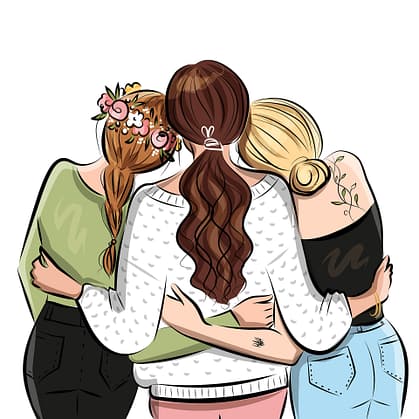
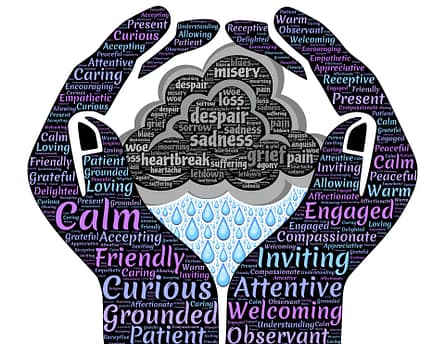
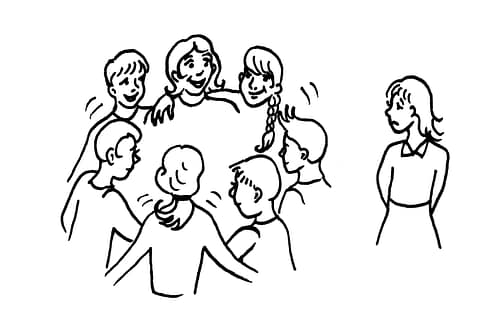
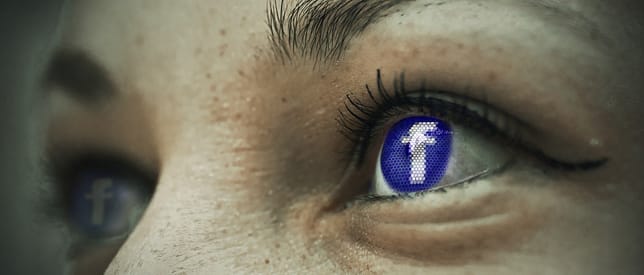
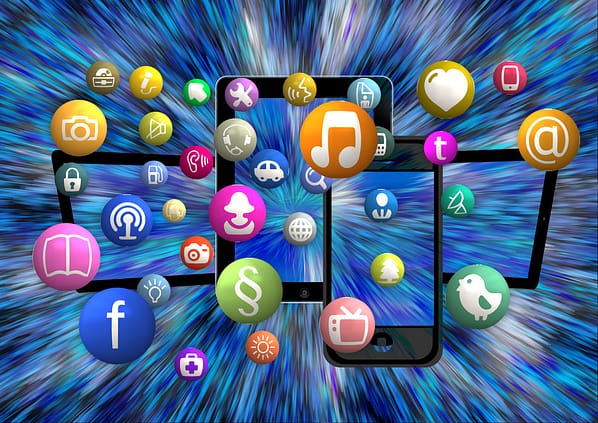
Thanks for sharing your personal experiences and observations regarding the intersection of grief and social media! Your viewpoint is refreshingly honest, acknowledging that your own experiences have been primarily negative. But it is clear that you also understand and respect that others may find solace and support through social media platforms during their own grief journey.
One aspect that stands out is the identification of three common types of grievers on social media. By categorizing individuals into those who constantly share reminders and tributes of their loss, those who avoid any mention of grief altogether, and those who strike a balance between the two, it makes it easier to understand and relate to the diverse ways people express their grief online. I like that you point out the existence of a fourth type of griever who actively avoids social media due to grief-related reasons. This recognition is important, as it emphasizes that each person’s journey through grief is unique, and their preferences for engaging with social media may change over time.
Hi Michele,
I’m glad that you found some good, relatable points about social media and its possible effects on grief. Yes, my experiences have been mostly unhelpful but plenty of people find support and connection through social media. As always, just as you said, it comes down to everyone’s grief journey being a unique and individual process!